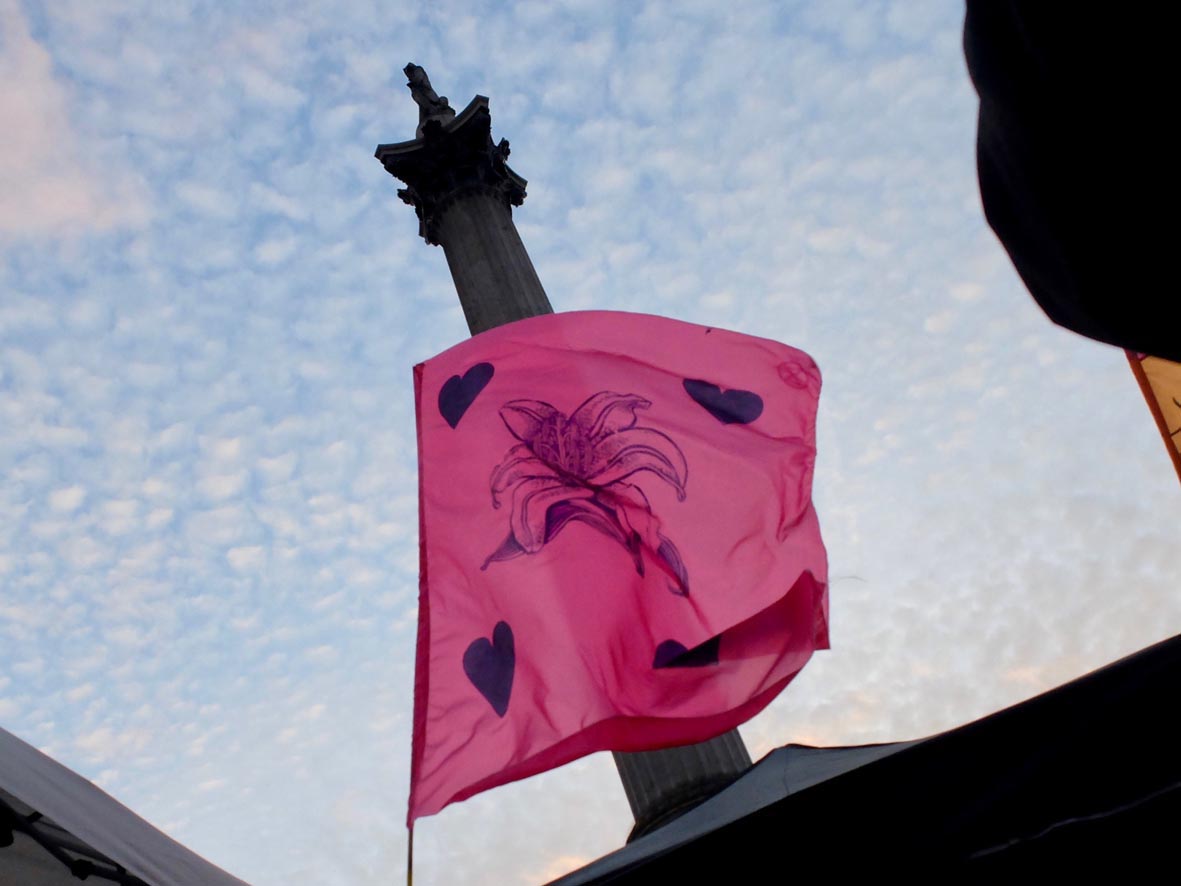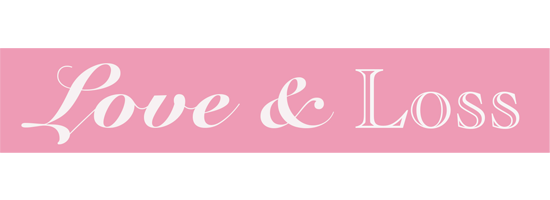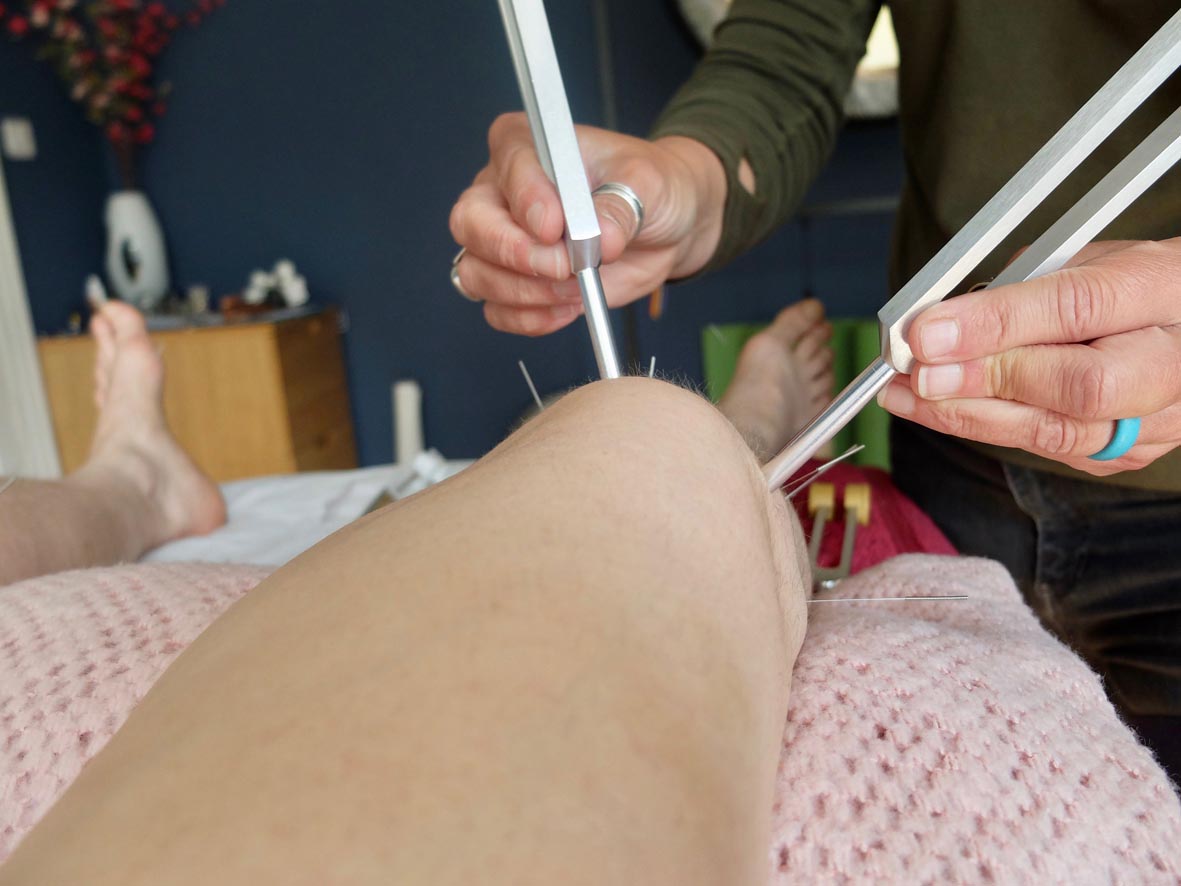10 Oct Column and Banner
 Under the eye of Nelson and the banner of Extinction Rebellion, Dr Emily Grossman comes to the stage in a white lab coat printed with the familiar hour glass logo. She packs a punch with a brief but clear presentation of current peer-reviewed climate science. Thousands of people – of all kinds including scientists – are taking to the streets to draw attention to the facts and predictions that people find it hard to hear, to really comprehend, and that governments fail to act on. Take the facts in, but hold them spaciously to allow room for the feelings they invoke. Let your feelings crack open your heart, but then reach out to connect through love.
Under the eye of Nelson and the banner of Extinction Rebellion, Dr Emily Grossman comes to the stage in a white lab coat printed with the familiar hour glass logo. She packs a punch with a brief but clear presentation of current peer-reviewed climate science. Thousands of people – of all kinds including scientists – are taking to the streets to draw attention to the facts and predictions that people find it hard to hear, to really comprehend, and that governments fail to act on. Take the facts in, but hold them spaciously to allow room for the feelings they invoke. Let your feelings crack open your heart, but then reach out to connect through love.
www.facebook.com/ScientistsForExtinctionRebellion/





